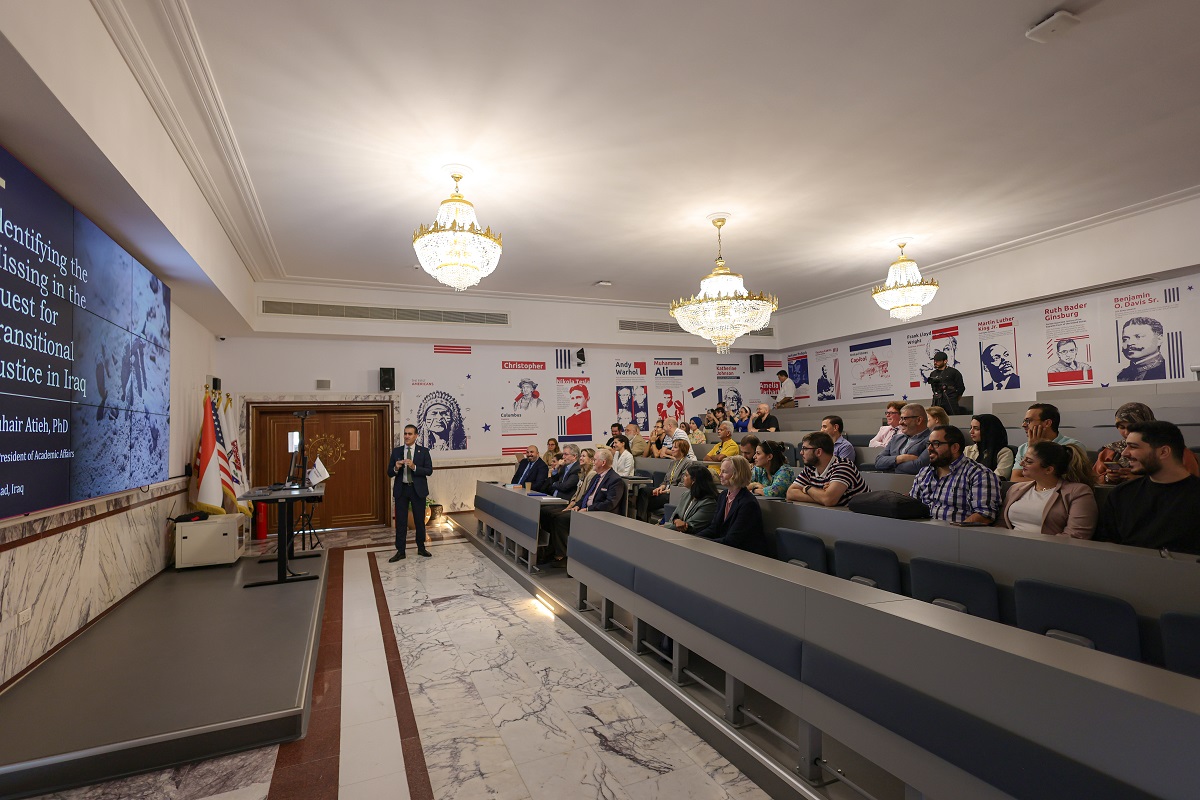The “American Space” at the American University of Iraq-Baghdad (AUIB) hosted a seminar under the title, “Identifying the Missing in the Quest for Transitional Justice in Iraq,” where university Vice-President for Academic Affairs, Dr. Zuheir Atieh, delivered a presentation on the “ethical obligation” to identify the remains of persons that went missing in the “post-invasion violence in Iraq,” and the importance of thereof in “giving closure” to the families of missing persons, and in accessing a phase of “transitional justice” in the country. Among the attendees were AUIB President, Dr. Michael Mulnix, and members of faculty and staff, in addition to visitors, most prominent of which was Justice Attaché at the U.S. Embassy in Baghdad, Ms. Ellen Endrizzi.
Transitional Justice is “societies’ response to massive and serious violations of human dignity and human rights,” said Dr. Atieh, stressing that it is all about “truth and memory” of the victims. The task at hand in Iraq is a huge one, as there are hundreds of thousands of people reported missing, and 250 mass graves discovered so far, remarked Dr. Atieh, explaining the importance of “Humanitarian Forensics” in this regard, and the role that AUIB seeks to play in developing the technical and soft skills, as well as the leadership skills, of professionals working in this field, via its prospective “Center for Humanitarian Forensics,” that will offer post-graduate certification programs in Forensic Anthropology, Forensic Psychology and Law, Forensic DNA Analysis, and Forensic Toxicology.
